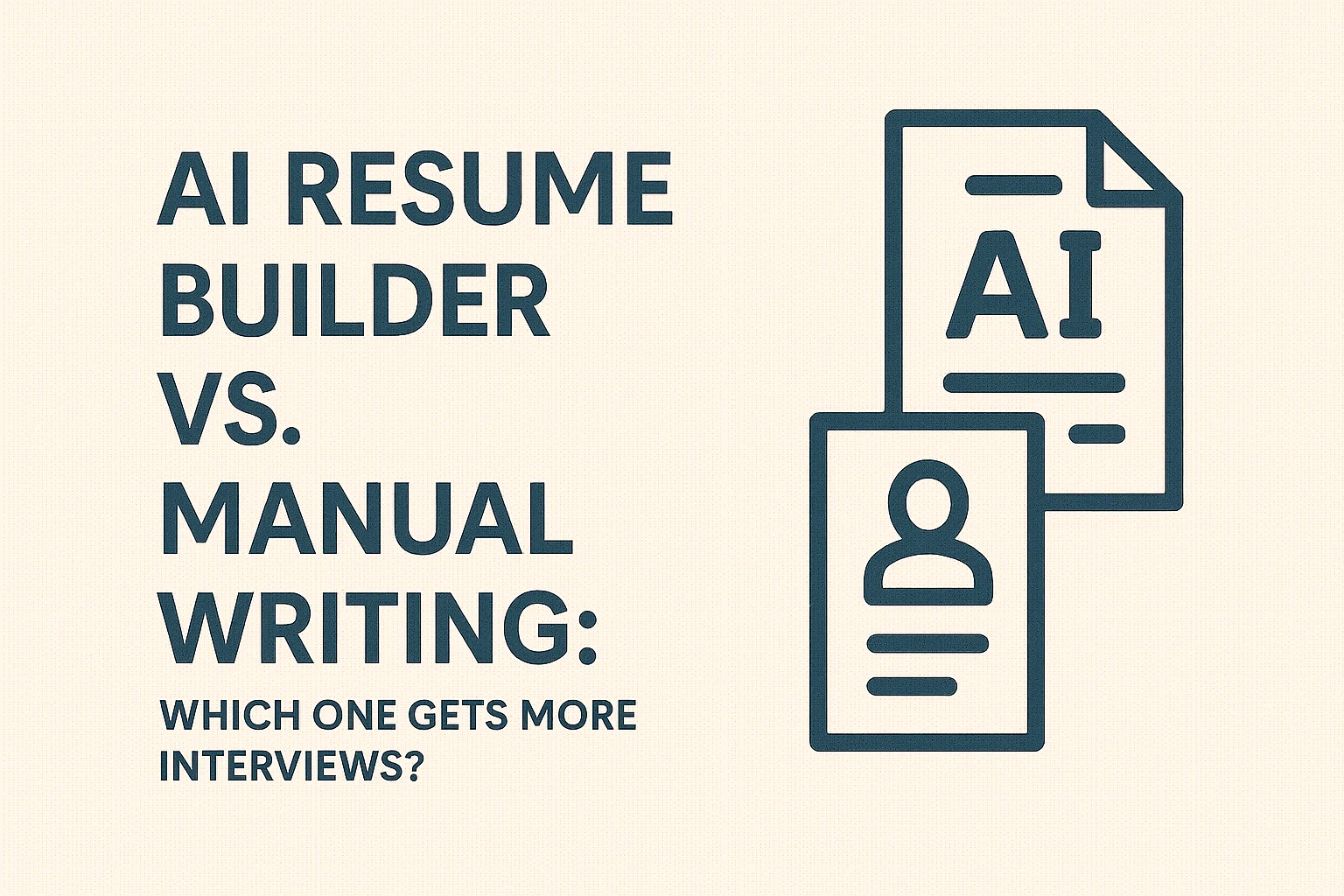
Writing a resume from scratch can feel like editing your own Wikipedia page—awkward, exhausting, and strangely impersonal. But what if a machine could help you write it better? That’s the question job seekers are facing in 2025: AI resume builder vs manual writing—which one actually performs better?
In this guide, we’ll compare both approaches, break down where each one excels, and show why a hybrid might be your best bet.
Manual writing means starting with a blank document (or maybe a generic template), writing each bullet point yourself, and formatting the layout without assistance. This approach gives you:
But it also comes with:
For writers or marketers, manual might feel natural. For engineers, analysts, or career-switchers? Not always.
AI resume builders like Jobcamp.ai take a job description + your resume (or LinkedIn) and generate a tailored, keyword-rich resume within seconds.
Key features:
Think of it like a co-writer that knows exactly what recruiters and bots are looking for.
Manual: 3–5 hours per resume if written from scratch. More if you’re tweaking each one per job.
AI: 1–5 minutes per resume, depending on the tool. Jobcamp.ai averages under 60 seconds.
Manual: High, but time-intensive. Easy to forget a keyword or undersell achievements.
AI: High when job-aware. Tools like Jobcamp tailor bullet points based on the job post.
Manual: Risky unless you understand how ATS works. Formatting, file types, and keyword usage can hurt you.
AI: Built for ATS. Some platforms even score your resume in real-time.
Manual: Naturally personalized, though many job seekers overuse vague language.
AI: Usually formal and clean. Jobcamp.ai offers tone settings to adapt to different industries.
Manual: Every change requires manual rewriting and reformatting.
AI: You can regenerate a section or the full resume instantly.
Manual resumes are better if:
Some roles benefit from quirky formats, custom branding, or multimedia resumes—something AI isn’t optimized for.
AI resumes outperform when:
If your resume has weak verbs, filler phrases, or bad formatting—AI fixes that instantly.
Here’s what most professionals do (whether they admit it or not):
That’s how you get speed + quality + personalization.
Manual bullet point:
“Helped marketing team with social media and content planning.”
AI-enhanced bullet point (via Jobcamp.ai):
“Collaborated with marketing team to develop a social content calendar, increasing engagement by 32% over 3 months.”
Which one sounds more interview-worthy?
You don’t have to choose between speed and substance. The smartest job seekers in 2025 combine both—AI for speed and structure, human input for voice and vision.
If you’re applying to multiple jobs, juggling deadlines, or unsure where to start, use an AI resume builder like Jobcamp.ai. Then layer in your voice.
Don’t start from zero. Start from 80%—and get to done faster.
Q: Are AI-generated resumes obvious to recruiters?
A: Not if done right. Jobcamp.ai creates resumes that sound professional and specific. See how it works.
Q: Which is better for getting interviews: AI or manual resumes?
A: Data suggests AI-optimized resumes perform better at scale—especially for passing ATS. Try it here.
Q: Can I edit an AI resume after it’s generated?
A: Yes. You’re encouraged to personalize it after. Jobcamp lets you tweak tone, content, and format.
Q: Do hiring managers care if I use AI?
A: They care about clarity, not the tool. If AI helps you present your story better, it’s an advantage. Start with Jobcamp.
Q: Is AI good enough for senior roles?
A: It depends. For executives, manual writing with AI drafts works best. Even then, Jobcamp.ai can be a great starting point.
Join thousands of job seekers who receive our weekly newsletter with insider tips, trends, and opportunities.